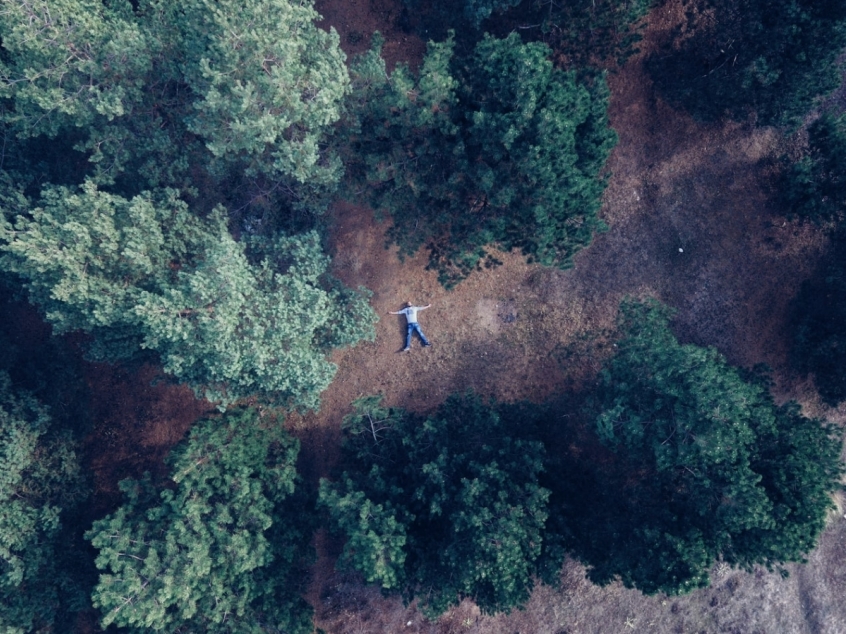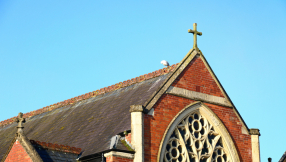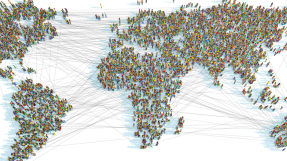
Just before coronavirus changed everything, a new book by an American pastor was taking the church by storm. Everyone was talking about it; the striking cover design was suddenly everywhere; leaders were rushing to declare it a modern classic. Within just a few months of wildfire word-of-mouth marketing, John Mark Comer's The Ruthless Elimination of Hurry was being Amazon-Prime'd to every Christian's bookshelf, carrying with it a soul-balming message about the importance of rest to human flourishing. In a world of relentless pace and constant distraction, it seemed to be the medicine we all needed.
Here's the basic concept: hurry and busyness are both the hallmarks of the modern world, and the enemies of a good spiritual life. Although our culture demands that we work and play harder and faster than ever before, this obsession with cramming even more into life is ironically causing us to draw much less out of it. We need to re-discover God's ancient rhythms of rest and sabbath, and draw on tools like the 'rule of life', or the spiritual disciplines of simplicity and solitude, to get our priorities in the right order. Comer's seemed to be the right voice, at the right time; almost instantaneously the book was being recommended by every notable leader.
And then, suddenly ... no-one was talking about the book anymore. Forced to stop almost every aspect of 'normal' life by the immovable object of 2020's original lockdown, we no longer had a hurry problem. John Mark Comer might have diagnosed the problem with our culture, but Covid-19 had fixed it. Hurry had been forcibly eliminated. Right?
A few days ago, Archbishop of Canterbury (and Youthscape patron) Justin Welby announced his intention to take a three-month sabbatical in 2021, and the response was... let's say mixed. The Guardian, not particularly well-known for a keen interest in clerical matters, published a 'now is not the time' think piece, while social media provided the usual fruitless battleground of clashing shouts on the topic. There certainly wasn't a consensus on the matter, but one strongly-expressed point of view was that this was precisely the wrong moment for the Church of England's ultimate earthly leader to be hanging up his garden hammock. Despite having already postponed the sabbatical once because of the pandemic, the idea that the Archbishop might want to prioritise his personal and spiritual wellbeing seems unpalatable for many.
Which begs the question: have we learned very much at all from 2020? Arguably the reason why John Mark Comer's book suddenly felt less urgent was that for a while we were all being forced to live out its recommendations whether we liked it or not. A new rhythm began to establish itself; daily walks became almost mandatory; expectations for what a person can realistically achieve in a working day became dramatically revised. And let's not forget: didn't that feel... good? But then, long before the word 'vaccine' was spoken with any confidence, the floodgates of busyness reopened as we hurried back in search of 'normal'. It seems that rather than trying to learn the lessons of how good slowing down felt in 'lockdown', we're content simply to view that period with nostalgia, as a nice thing at the time.
Comer's arguments aren't new, and he doesn't claim them to be. They draw on the work of spiritual giants like Richard Foster and Dallas Willard, and a long line of saints before them. Ultimately though, they're rooted in some of the most familiar passages of the Old Testament, where God himself outlines and models a rhythm of rest. Because it's listed in the Ten Commandments in Exodus 20, we classically see Sabbath as one of his most important rules; in reality, it's one of his greatest gifts. But wait...
If you're anything like me, this is the moment in an article on rest where you check out. We know the Sabbath is good medicine, but in the same way that we know a trip to the gym or a dose of cod liver oil is allegedly good for us. There's too much to lose in the receipt of the gift, even if that's what it is. Truth be told, I avoided John Mark Comer's book for months as everyone around me bored on about it. We know we're too busy... truth is some of us don't even want to change.
I imagine Archbishop Justin could function perfectly well for another five years without a sabbatical. I doubt he would burn out, and I'm fairly confident he'd continue to provide good leadership for his church. But by not taking up the biblically-mandated gift of time out – time with God – what does he miss? Or rather, by prioritising his own relationship with God - and good self-care - what is he boldly modelling to all of us who seek to lead others, or even seek to exist healthily? This is perhaps exactly why the sabbatical must go ahead.
I've spent my last two decades working in youth ministry, where our main role is to model life with God to the next generation; to say 'follow me, as I follow Christ' to the teenagers in our sphere of influence. That's the most important part of my job - way more vital than how good my programmes are, or how innovative my ideas might be. This is true for anyone who would seek to lead others - old or young. The strength of our disciple-making is always measured by our own discipleship.
So - when we behave counter-culturally, and instead choose the way of the kingdom, we create a prophetic act through which God can speak to others. That's what John Mark Comer was calling us to; that's what Justin Welby is trying to model, as those of us in his particular tribe seek to follow his lead. That's why it's important that the Archbishop stands his ground, even under the glare of the Guardian.
God gives his people the gift of the Sabbath at Sinai, as part of their wider re-humanisation after hundreds of years of slavery in Egypt. Learning to rest is part of their discovery of what it means to live life as it was always intended - instead of the horror-show of relentless work that their lives had become. Without stretching the point too far, doesn't that just sound a tiny bit familiar? As the tornado of work, busyness and distraction regathers itself after 2020's enforced slow-down, perhaps we shouldn't be saying 'now is not the time' for self-care and rest. Rather, perhaps this is exactly the moment to learn - and model - the principle of Sabbath again, before it's too late.
Martin Saunders is the Director of Satellites, a new Summer youth event from Youthscape, and author of We Are Satellites (SPCK). This article originally appeared on the Youthscape website.













